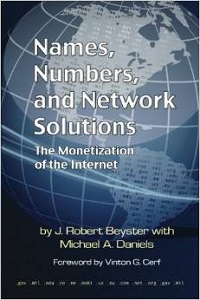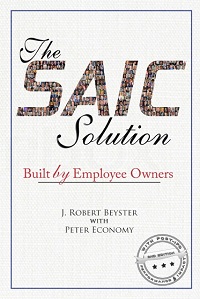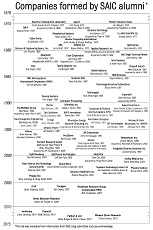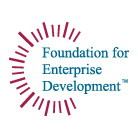The Economic Development Corporation of San Diego had their annual awards event last week at the Jenny Craig Pavilion at the University of San Diego. A couple of people were honored, including Dr. Kazuo Inamori, the founder of Kyocera, who received the Herb Klein Civic Leadership Award, and Malin Burnham. Kyocera has built a very successful business here in San Diego around telecommunications and ceramics. Malin Burnham is called by many “Mr. San Diego” and is a cornerstone of the local business community. The speaker was Mr. John Micklethwait, editor-in-chief for The Economist. He was pessimistic for the future of the world economy. He felt that China and India were contributing to the trade deficit of both the U.S. and Europe. This would have an adverse impact on employment in both places and in addition have an adverse impact on the stock markets. His suggestion was that the solution was not to constrain trade, but to encourage free trade among all nations. This suggestion of course runs counter to the opinions and actions of most legislative bodies around the world, which are generally focused on political considerations. You can find out more in the February 3-9, 2007 issue of The Economist.
Click on the comments link to share your thoughts.
- Bob
Here are my responses to previous weeks’ comments:
Tony Laganelli (Week 33): Thank you for your blog contribution. I too am bothered by the article in Vanity Fair. They sent us a list of questions which they were going to address in the article, and both SAIC and I made responses. As far as I can tell, they ignored these responses in their article. The issues brought up in the article were old ones. The company had long ago addressed and resolved them. As for the personal attack on me, the events cited came up in legal depositions and I am bound legally not to discuss them with anyone. For your information, none of the scandalous remarks are true.
Jay Bernhardt (Week 33): As you probably recall, I’m an avid proponent of employee ownership. ESOPs played an important role in the SAIC retirement plan and I feel that they’re an excellent way to build an employee ownership culture. As you know, SAIC had an ESOP as well as many other ownership plans. I felt these plans handled the questions of liquidity adequately while I was the CEO. The world has changed since then and it may be that SAIC had no other choice but to go public. For other companies, the answer might be different. I would suggest they try to stay private as long as possible. UPS and other companies have shown that the private model can be financially successful.
David Niemann (Week 33): I responded to a blog submission from Tony Laganelli which covered the same subject matter. If you have any additional questions, let me know.
Gael Tarleton (Week 32): Your idea sounds like an interesting one. I hope you will consider exploring this for an article. I will talk to a number of people here in La Jolla who work in international business and see how they respond. If I find a good reference I’ll mention it on the blog.
John Cosby (Week 32): Corporate governance is a complicated subject which I had to deal with as CEO of SAIC, particularly during the last couple of years I was there. SAIC is a government contractor as you know, and that fact of life constrained compensation within the company. The government will only recognize as allowable compensation salaries that fit their standards. The human resources department took these standards and used them as a basis for determining salary ranges for management and the board. There were certain senior people that the board determined the salaries for themselves. In balance, our compensation was competitive since we had to be able to recruit talented new employees.
Ron Davison (Week 32): Thank you for your blog contribution. There are a great many forces that shape and transform the modern corporation. One that you need to include in your list is how people are trained in business schools since they would likely pay a great deal of attention to what they learned about management and corporate management there. By and large, I think many of the regulations on business over the last couple of years like Sarbanes-Oxley have tended to make corporate leaders more risk averse. This is not necessarily a good thing for the country since it may inhibit innovation. This morning I heard Federal Reserve Chairman Bernanke talking about this issue before Congress and committing to see if any of these regulations were overly restrictive.
Steve Rizzi (Week 32): As you know, I plan to be in Washington in the near future, and we can hopefully get together to discuss what you are doing in the areas of data mining and warehousing. I am sure it will be an interesting experience for me.
Drew George (Week 32): I got your message and I’m checking with our experts on the subject. I’ll let you know what I find out.
Cecelia McCloy (Week 31): I don’t plan to visit the Bay Area soon, but if I do, it will probably be in connection with the book. I will most certainly look you up and take time to talk with one of the groups you mentioned.
Ted Manakas (Week 1): We recently found your blog post of January 14 and I have to apologize for not picking it up sooner. You did a great job while you were here at SAIC and I would be curious if you are still at AT&T.
Joseph Swiderski (Week 1): Glad to hear about your success. We’ll be sure to update our list for the second printing of the book. Let me know when you’re in the San Diego area.
Larry Angell (Week 1): Thank you for your blog entry, and I’m sorry to hear you’re not in the best of health. As far as SAIC is concerned, we address the subject of the ever-changing strategy we used in building the company. It certainly was neither a carefully crafted approach, nor incredible luck. Hard work played a major role, as well as some luck and some strategy. I believe that what we did at SAIC has and can serve as a model for other high-technology organizations. I would appreciate if you would explain what H, I, M, O is. Let me know what you think of the book.





Bob:
Friday I received a plaque for 35 years at SAIC where I am now a consulting employee as you know. That is a long time ago but I recall fully our meeting 35 years ago when you agreed to hire me and a team of OR and systems people I brought over from RAC. That was the best thing that ever happened to me professionally and I enjoyed helping you and other build such a strong, important employee-owned company over the years. Now, I am very happy to help you and others tell the story via the book and FED articles and activities. I look forward to seeing you and Betty in March during book signing activities. Thanks for a great 35 years! Jim
Dr. Beyster,
I came across your blog when looking for SAIC employee reaction to the Vanity Fair article. I had planned and executed all external communications related to Telcordia’s acquisition by SAIC and sat across from you in the Morristown Board room during the press announcement. I left Telcordia for Lucent where I took an early retirement package. Like you, I don’t believe in the concept of retirement and am working in the education field. As my son lives in LA and my daughter attends Chapman University in Orange, I frequently travel from New Jersey to your state. While I haven’t made it as far south as La Jolla, I did give SAIC’s San Francisco office a wave.
Now, in regards to today’s blog. Without having the opportunity to read Burnham’s article, I feel that resisting the inevitability of free trade is a waste of time and effort as the number of U.S and European companies pursuing and engaging in business in Asia will only continue to rise. The opportunities in that part of the world are simply too great to ignore. In addition, the funds we have borrowed from China to support the national debt has given it incredible leverage over the U.S. Even though it may not be politically expedient to restrict trade, I think that the financial hold that China is building over the U.S. will ultimately prevail.